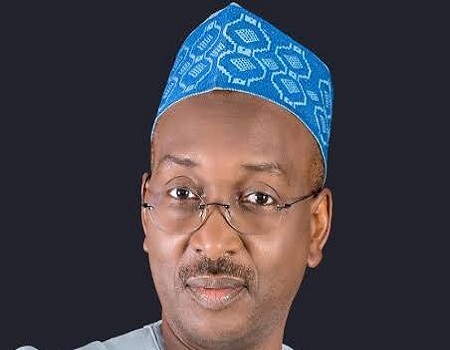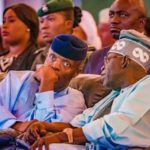As agitation for restructuring of the nation political architecture takes the front burner in the polity, Director General of the Forum of governors in the All Progressives Congress (APC), Salihu Lukman, has advised the organised labour to seek decentralisation of the minimum wage issue in the country.
Lukman in a statement entitled, “True Federalism and Labour Issues,” argued that each state should be free to decide on its level of remuneration based on its resources and productivity.
Tribune Online checks revealed that the operating minimum wage for workers in both federal and state civil service in the country is N30,000.
The Director-General of the Progressive Governors Forum maintained that “a centralised framework for minimum wage legislation based on using the financial capacity of Federal Government to fix national minimum wage is hardly informed by economic indices of work output across the country and reflecting all sectors of the economy.”
He further argued that “such a framework can only result in either shortchanging workers in high-revenue states/areas or over-stretching employers in low-revenue states/areas. “Certainly, a review of wage-fixing theories would highlight these challenges and perhaps dangers.”
While he noted that the revenue profile of government is on the increase, Lukman asked the Nigeria Labour Congress and the Trade Union Congress to collaborate with both federal and state government to address the menace of corruption and waste which he noted were inimical to revenue growth in the public sector.
He equally advised the organised labour to seize the initiative to encourage the government to create enabling environment for investment to thrive as he noted that such drive would stimulate growth in the private sector and ultimately, boost job creation for the teeming unemployed.
“It needs to be stated emphatically and unequivocally that although there is increased revenue in the country, which has resulted in improved financial profile of especially states and federal governments in the country, it has not favourably altered the structure of government finances.
“Some of the underlying factors would include factors of corruption, which the APC government of President Muhammadu Buhari is committed to fighting and has been taking initiatives. While we may debate about the level of success, it should be a welcome development to have input from our leaders of non-governmental organisations such as the NLC in terms of what needs to be done at all levels in order to strengthen our fight against corruption and therefore increase the financial capability of all governments, especially at state levels to be able to accommodate increased wages for workers. In all these, beyond the lamentation against political leaders in the country on the issue of corruption, what are the specific demands of NLC on fighting corruption in the country given that it is a problem that have ravaged all sectors and all levels of society, including the labour movement.
“Besides, given characteristically unstable international oil market, current levels of oil revenue are on the decline. It is to the credit of the Federal Government that non-oil revenue is increasing and in the case of many states, the capacity to mobilise internally generated revenue has increased.
“What all these suggest is that the nation should be able to assess these emerging realities and accordingly reconfigure wage determination process in recognition of revenue realities of the constituent units of our federal system and as well as ensuring that our national capacity to affirm the ability of private-sector employers to operate and therefore create more employment are not undermined. Therefore, to use the capacity of the Federal Government as determining variables for minimum wage fixing would be almost suicidal.
“Be that as it may, there are certainly challenges that need to be addressed. The challenges border on ensuring the availability of enough financial resources to guarantee higher levels of wages in the country, in the context of which issues of minimum wage can be correctly computed taking both production and cost of living indices into account.
“NLC should approach this based on a strategy of strengthening its own organisational capacity to negotiate improved conditions in the country and not look for easy approaches of centralised minimum wage fixing that are not sustainable, which include retention of a faulty constitutional provision such as the provision of item 34, Part 1 of Second Schedule of the 1999 Constitution, as amended.”
YOU SHOULD NOT MISS THESE HEADLINES FROM NIGERIAN TRIBUNE
NLC should seek decentralisation of minimum wage ― PGF DG
ANALYSIS: One Year After Index Case, Nigeria Yet To Meet COVID-19 Testing Target
One year after Nigeria recorded its first COVID-19 index case, the country has not been able to meet its testing target.
On February 27, 2020, Nigeria’s first index case of COVID-19 was confirmed in Lagos. This was the first reported case in Sub-Saharan Africa. An Italian, who had just returned from Milan, Italy on the 25th of February 2020, was confirmed by the Virology Laboratory of the Lagos University Teaching Hospital (LUTH), and managed at the Infectious Disease Hospital (IDH) in Yaba, Lagos…NLC should seek decentralisation of minimum wage ― PGF DG
NLC should seek decentralisation of minimum wage ― PGF DG






